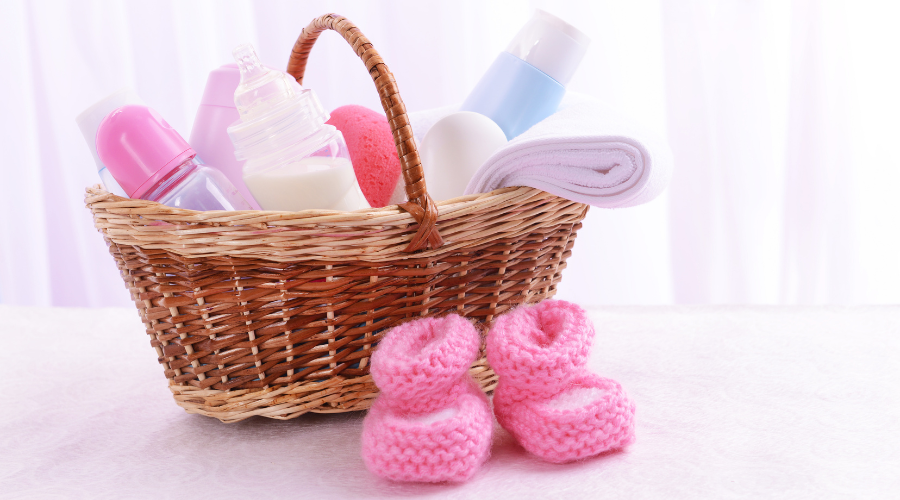
Which is Better for Babies: Glass or Plastic Baby Bottles?
🍼 OBF24™ BLOG
Becoming a parent is a momentous occasion, and it comes with a host of decisions to make, including choosing the right baby bottles. Among the most debated choices is whether to opt for glass or plastic baby bottles. Both options have their advantages and considerations, and as a parent, you want to ensure the best for your little one. Let's dive into the details to help you make an informed decision.
When it comes to selecting baby bottles, there's no shortage of options on the market. Among the primary considerations is the choice between glass and plastic bottles. Both materials have their own set of pros and cons that cater to different needs and preferences.
Safety Considerations
🍼 Glass Baby Bottles
Glass baby bottles are often touted as a safer option for babies. They are made from natural materials, and unlike plastic bottles, they don't contain potentially harmful chemicals like BPA. Glass is also non-porous, which means it won't absorb odors or flavors from previous feedings.
🍼 Plastic Baby Bottles
Plastic baby bottles have come a long way in terms of safety. Many are now labeled as "BPA-free," addressing concerns about harmful chemicals. However, some parents may still worry about the potential for other chemicals in plastic to leach into the milk or formula, especially when bottles are heated.
Durability and Longevity
Glass baby bottles are known for their durability. They are less likely to scratch or cloud over time, ensuring a clear view of the contents. However, glass bottles are more prone to breakage if dropped.
Plastic baby bottles are lightweight and less likely to shatter if they fall. However, they can become scratched and worn, which might necessitate more frequent replacements.
Ease of Use
🍼 Glass Baby Bottles
Glass bottles can be heavier than their plastic counterparts, which might make them slightly less convenient for on-the-go feedings. However, they are microwave-safe and can be heated without concerns about chemical leaching.
🍼 Plastic Baby Bottles
Plastic bottles are lightweight and easy to carry around. Many are designed with measurement markings and easy-to-hold shapes. However, some plastic bottles should not be microwaved, as they may release harmful substances when heated.
Portability
Plastic baby bottles are often preferred for their portability. They are less likely to break during travel, making them a popular choice for families on the move.
Cleaning and Maintenance
Both glass and plastic bottles can be cleaned using bottle brushes or dishwashers. However, glass bottles are less likely to retain odors and stains over time.
Temperature Resistance
Glass bottles tend to be more temperature-resistant than plastic bottles. They can withstand higher temperatures without warping or deforming.
Environmental Impact
Glass bottles are considered more environmentally friendly as they are recyclable and do not contribute to plastic waste. Plastic bottles, on the other hand, contribute to the growing issue of plastic pollution.
Cost Comparison
In general, plastic bottles are more budget-friendly than glass bottles. Glass bottles tend to be more expensive due to the cost of the material and manufacturing processes.
Parental Preferences
The choice between glass and plastic bottles often comes down to parental preferences. Some parents prioritize safety and opt for glass, while others value the convenience and portability of plastic.
Conclusion
In the debate between glass and plastic baby bottles, there is no definitive winner. Both options have their merits and drawbacks, and the choice ultimately depends on your individual priorities. Prioritize safety, ease of use, durability, and environmental impact when making your decision. Remember, every baby is unique, so what works best for one might not be the ideal choice for another.
FAQs
💭Can I microwave glass baby bottles?
Yes, glass baby bottles are generally safe for microwave use, as they do not release harmful chemicals when heated.
💭 Are plastic baby bottles completely free from harmful chemicals?
Many plastic baby bottles are labeled as "BPA-free," but concerns remain about other potential chemical leaching. It's advisable to use them as per the manufacturer's instructions.
💭 Which type of bottle is better for colicky babies?
Some parents find that glass bottles are better for colicky babies, as they do not retain odors and are easier to clean thoroughly.
💭 Can I use glass baby bottles for formula feeding?
Absolutely, glass baby bottles are safe for formula feeding and can be an excellent choice for parents who prioritize safety.
💭 Do plastic bottles stain easily?
Yes, plastic bottles can develop stains over time, particularly if used to hold liquids like carrot or fruit juices.

